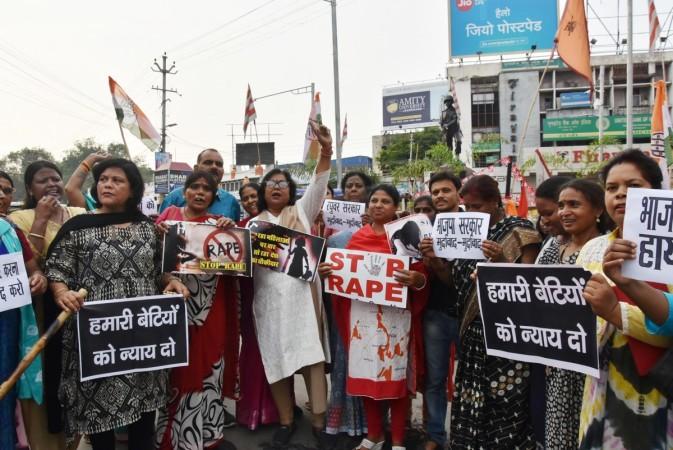![[Representational Image] Prisons and jails](https://data1.ibtimes.co.in/en/full/614761/prisons-jails.jpg?h=450&l=50&t=40)
A 3.6 percent increase in criminal cases was recorded in 2017, as compared to 2016, according to the latest annual crime data, "Crime in India-2017", released by the National Crime Records Bureau (NCRB), on Monday, October 21.
A total of 50 lakh cases of cognisable crimes were lodged across the country in 2016. The number of cases of murder has seen a 5.9 percent decline, from 30,450 in 2016 to 28,653 in 2017. "Disputes" were the motives behind the maximum number of murders (7,898 cases), followed by "personal vendetta or enmity" (4,660) and "gain" (2,103).
A nine percent increase in kidnapping cases was notices, with 95,893 cases registered in 2017 against 88,008 in 2016. Out of the total 1,00,555 victims, (23,814 male and 76,741 female) 56,622 were children (14,296 male and 42,326 female) and 43,933 (9,518 male and 34,415 female) victims were adults.
Out of 9,89,071 offences affecting the human body, 1,42,794 were of death by negligence and 86,001 of assault on women with intent to outrage her modesty.
Fraudulent transactions and sexual exploitation were the most reported cybercrimes in India in 2017, according to the NCRB. The report said that cyber frauds led the number of reported cybercrimes by a large margin, accounting for a total of 12,213 individual reports across all states and union territories in India. The second most individually reported cases of cybercrime came in the form of online sexual exploitation and harassment, which were 1,460, as per India's official cybercrime records for 2017.

In terms of the topographic distribution of cybercrime reports, Uttar Pradesh has been accounted as the state that received the highest number of cybercrimes in 2017, with 4,971 out of the 21,796 accounted cases of cybercrime. Maharashtra ranked the second highest with 3,604 counts of reported online crime, while Karnataka ranked third with 3,174 cases.
In the northeast, Assam recorded a sharply higher number of cybercrimes in comparison to other states, with a total of 1,120 reported cases in 2017.
Sexual exploitation and personal revenge have been noted as the two most focused motives behind cyber attacks in Assam, throwing interesting insight into how the nature of cybercrime differs among states.
Among the other most affected states, frauds and extortion were the biggest motives behind attacks in UP, while sexual exploits and frauds were the biggest causes of attacks in Maharashtra.
Alongside the uniform aspect of frauds in each state, "causing disrepute" has been noted as the second most reported form of cyber-attacks in Karnataka in 2017.
The NCRB, under the Union Ministry of Home Affairs, is responsible for collecting and analysing crime data as defined by the Indian Penal Code and special and local laws in the country.
(With inputs from IANS.)













